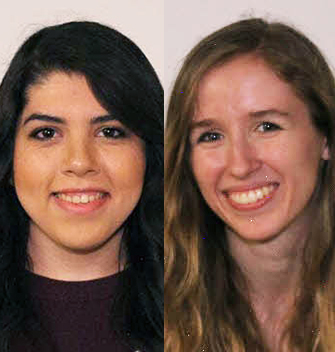
By Lourdes Resendiz, a junior accounting major from Goshen, and Kelsey Winters, a junior peace, justice and conflict studies major from Upland, Indiana
This week’s theme: God pours out life-giving drink
At some point, we all experience times of thirst when we need more of God. When the weight of the world is what rests before us, it is easy for that to become our focus. From that point, we may feel burdened and overwhelmed by the weight of our circumstances. In these moments, hard as they may be, we have a choice. Where do we turn?
In Psalm 63:1-8, David writes of his thirst for God, even in the midst of the Judean wilderness. “My soul thirsts for you, my flesh faints for you, as in a dry and weary land where there is no water.” His need for God is palpable, and perhaps relatable for the moments when our own lives feel like more than we can handle. In these moments, our greatest comfort can come from turning to God, seeking God’s goodness and having faith that God will provide.
In this psalm, David does not question whether God will be enough to quench his thirst. He accepts God’s worthiness and glory as fact. Even while we may struggle to comprehend the fullness of God – even while we thirst for more of God’s presence – God’s character does not change. God remains a well that never runs dry, there to quench our thirst even while we struggle to pick up the bucket. God’s life-giving drink is there, ready to be received. The steadfast nature of God’s character, God’s readiness to be received, means that our thirst is not unending.
David’s words are characterized by his orientation towards faithfulness. Even while thirsting for God, David worships. His constant choice remains praising God. “Because your steadfast love is better than life, my lips will praise you… My soul will be satisfied as with fat and rich food, and my mouth will praise you with joyful lips.” Again and again, David praises and meditates upon God’s love and faithfulness, recognizing God’s power and glory.
Our own perspective in times of thirst bears consideration. Do we sit in our wilderness, thirsting without action? Or does our thirst make way for action? Do we choose to praise, seeing, as David did, that God’s right hand upholds us? Through our praise, we exhibit and strengthen our faith in God, knowing and trusting that God’s presence brings satisfaction and quenches our thirst.




